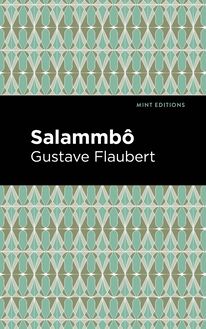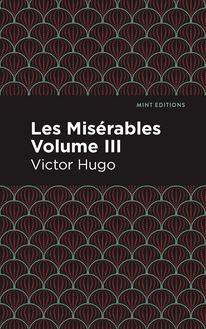-
 Univers
Univers
-
 Ebooks
Ebooks
-
 Livres audio
Livres audio
-
 Presse
Presse
-
 Podcasts
Podcasts
-
 BD
BD
-
 Documents
Documents
-
- Cours
- Révisions
- Ressources pédagogiques
- Sciences de l’éducation
- Manuels scolaires
- Langues
- Travaux de classe
- Annales de BEP
- Etudes supérieures
- Maternelle et primaire
- Fiches de lecture
- Orientation scolaire
- Méthodologie
- Corrigés de devoir
- Annales d’examens et concours
- Annales du bac
- Annales du brevet
- Rapports de stage
La lecture à portée de main
Vous pourrez modifier la taille du texte de cet ouvrage
Découvre YouScribe en t'inscrivant gratuitement
Je m'inscrisDécouvre YouScribe en t'inscrivant gratuitement
Je m'inscrisEn savoir plus
Vous pourrez modifier la taille du texte de cet ouvrage
En savoir plus

Description
“A rousing frontier saga.”-The Washington Post
“(Cooper’s) sympathy is large, and his humor is as genuine--and as perfectly unaffected--as his art.”-Joseph Conrad
The Last of the Mohicans (1826) is the most popular of James Fenimore Cooper’s Leatherstocking Tales. The continuing adventures of the peerless frontiersman Hawkeye, also known as Natty Bumppo among other monikers, is an unforgettable saga of the frontier life of early America.
Set during the French and Indian Wars of mid-eighteenth century, this hair-raising historical novel opens as the French army is attacking Fort William Henry, a British fort in Western New York commanded by the withdrawn Colonel Munro. In the forest between Fort William Henry and another distant British outpost, Munro’s daughters Alice and Cora, are escorted through the dangerous terrain by Major Heyward and a Huron Indian named Magua. When the group crosses their path with the white frontiersman Natty Bumppo and his Indian companions, Heyward is warned that they are being betrayed by Magua, and the group is not being led to Fort William Henry. Magua runs to the woods, and the group is lead to safety by Natty and the two remaining members of the Mohican tribe, Chingachgok and his son Uncas. Next morning, the group is attacked by a gang of the Huron tribe, and all are captured with the exception of Natty Bumppo and the mohicans. In the ensuing events of this extraordinary novel, the conflicts of battle, love, and race are unfolded against a thrilling adventure story. This classic of American literature has been adapted into numerous films, including the 1992 version starring Daniel Day-Lewis.
With an eye-catching new cover, and professionally typeset manuscript, this edition of The Last of the Mohicans is both modern and readable.
Sujets
Informations
| Publié par | Mint Editions |
| Date de parution | 06 octobre 2020 |
| Nombre de lectures | 0 |
| EAN13 | 9781513273112 |
| Langue | English |
| Poids de l'ouvrage | 1 Mo |
Informations légales : prix de location à la page 0,0500€. Cette information est donnée uniquement à titre indicatif conformément à la législation en vigueur.
Extrait
The Last of the Mohicans
James Fenimore Cooper
The Last of the Mohicans was first published in 1826.
This edition published by Mint Editions 2020.
ISBN 9781513266152 | E-ISBN 9781513273112
Published by Mint Editions ®
minteditionbooks.com
Publishing Director: Jennifer Newens
Project Manager: Gabrielle Maudiere
Design & Production: Rachel Lopez Metzger
Typesetting: Westchester Publishing Services
C ONTENTS Chapter 1 Chapter 2 Chapter 3 Chapter 4 Chapter 5 Chapter 6 Chapter 7 Chapter 8 Chapter 9 Chapter 10 Chapter 11 Chapter 12 Chapter 13 Chapter 14 Chapter 15 Chapter 16 Chapter 17 Chapter 18 Chapter 19 Chapter 20 Chapter 21 Chapter 22 Chapter 23 Chapter 24 Chapter 25 Chapter 26 Chapter 27 Chapter 28 Chapter 29 Chapter 30 Chapter 31 Chapter 32 Chapter 33
Chapter 1
“Mine ear is open, and my heart prepared:
The worst is wordly loss thou canst unfold:—
Say, is my kingdom lost?”
—S HAKESPEARE
It was a feature peculiar to the colonial wars of North America, that the toils and dangers of the wilderness were to be encountered before the adverse hosts could meet. A wide and apparently an impervious boundary of forests severed the possessions of the hostile provinces of France and England. The hardy colonist, and the trained European who fought at his side, frequently expended months in struggling against the rapids of the streams, or in effecting the rugged passes of the mountains, in quest of an opportunity to exhibit their courage in a more martial conflict. But, emulating the patience and self-denial of the practiced native warriors, they learned to overcome every difficulty; and it would seem that, in time, there was no recess of the woods so dark, nor any secret place so lovely, that it might claim exemption from the inroads of those who had pledged their blood to satiate their vengeance, or to uphold the cold and selfish policy of the distant monarchs of Europe.
Perhaps no district throughout the wide extent of the intermediate frontiers can furnish a livelier picture of the cruelty and fierceness of the savage warfare of those periods than the country which lies between the head waters of the Hudson and the adjacent lakes.
The facilities which nature had there offered to the march of the combatants were too obvious to be neglected. The lengthened sheet of the Champlain stretched from the frontiers of Canada, deep within the borders of the neighboring province of New York, forming a natural passage across half the distance that the French were compelled to master in order to strike their enemies. Near its southern termination, it received the contributions of another lake, whose waters were so limpid as to have been exclusively selected by the Jesuit missionaries to perform the typical purification of baptism, and to obtain for it the title of lake “du Saint Sacrement.” The less zealous English thought they conferred a sufficient honor on its unsullied fountains, when they bestowed the name of their reigning prince, the second of the house of Hanover. The two united to rob the untutored possessors of its wooded scenery of their native right to perpetuate its original appellation of “Horican.” 1
Winding its way among countless islands, and imbedded in mountains, the “holy lake” extended a dozen leagues still further to the south. With the high plain that there interposed itself to the further passage of the water, commenced a portage of as many miles, which conducted the adventurer to the banks of the Hudson, at a point where, with the usual obstructions of the rapids, or rifts, as they were then termed in the language of the country, the river became navigable to the tide.
While, in the pursuit of their daring plans of annoyance, the restless enterprise of the French even attempted the distant and difficult gorges of the Alleghany, it may easily be imagined that their proverbial acuteness would not overlook the natural advantages of the district we have just described. It became, emphatically, the bloody arena, in which most of the battles for the mastery of the colonies were contested. Forts were erected at the different points that commanded the facilities of the route, and were taken and retaken, razed and rebuilt, as victory alighted on the hostile banners. While the husbandman shrank back from the dangerous passes, within the safer boundaries of the more ancient settlements, armies larger than those that had often disposed of the scepters of the mother countries, were seen to bury themselves in these forests, whence they rarely returned but in skeleton bands, that were haggard with care or dejected by defeat. Though the arts of peace were unknown to this fatal region, its forests were alive with men; its shades and glens rang with the sounds of martial music, and the echoes of its mountains threw back the laugh, or repeated the wanton cry, of many a gallant and reckless youth, as he hurried by them, in the noontide of his spirits, to slumber in a long night of forgetfulness.
It was in this scene of strife and bloodshed that the incidents we shall attempt to relate occurred, during the third year of the war which England and France last waged for the possession of a country that neither was destined to retain.
The imbecility of her military leaders abroad, and the fatal want of energy in her councils at home, had lowered the character of Great Britain from the proud elevation on which it had been placed by the talents and enterprise of her former warriors and statesmen. No longer dreaded by her enemies, her servants were fast losing the confidence of self-respect. In this mortifying abasement, the colonists, though innocent of her imbecility, and too humble to be the agents of her blunders, were but the natural participators. They had recently seen a chosen army from that country, which, reverencing as a mother, they had blindly believed invincible—an army led by a chief who had been selected from a crowd of trained warriors, for his rare military endowments, disgracefully routed by a handful of French and Indians, and only saved from annihilation by the coolness and spirit of a Virginian boy, whose riper fame has since diffused itself, with the steady influence of moral truth, to the uttermost confines of Christendom. 2 A wide frontier had been laid naked by this unexpected disaster, and more substantial evils were preceded by a thousand fanciful and imaginary dangers. The alarmed colonists believed that the yells of the savages mingled with every fitful gust of wind that issued from the interminable forests of the west. The terrific character of their merciless enemies increased immeasurably the natural horrors of warfare. Numberless recent massacres were still vivid in their recollections; nor was there any ear in the provinces so deaf as not to have drunk in with avidity the narrative of some fearful tale of midnight murder, in which the natives of the forests were the principal and barbarous actors. As the credulous and excited traveler related the hazardous chances of the wilderness, the blood of the timid curdled with terror, and mothers cast anxious glances even at those children which slumbered within the security of the largest towns. In short, the magnifying influence of fear began to set at naught the calculations of reason, and to render those who should have remembered their manhood, the slaves of the basest passions. Even the most confident and the stoutest hearts began to think the issue of the contest was becoming doubtful; and that abject class was hourly increasing in numbers, who thought they foresaw all the possessions of the English crown in America subdued by their Christian foes, or laid waste by the inroads of their relentless allies.
When, therefore, intelligence was received at the fort which covered the southern termination of the portage between the Hudson and the lakes, that Montcalm had been seen moving up the Champlain, with an army “numerous as the leaves on the trees,” its truth was admitted with more of the craven reluctance of fear than with the stern joy that a warrior should feel, in finding an enemy within reach of his blow. The news had been brought, toward the decline of a day in midsummer, by an Indian runner, who also bore an urgent request from Munro, the commander of a work on the shore of the “holy lake,” for a speedy and powerful reinforcement. It has already been mentioned that the distance between these two posts was less than five leagues. The rude path, which originally formed their line of communication, had been widened for the passage of wagons; so that the distance which had been traveled by the son of the forest in two hours, might easily be effected by a detachment of troops, with their necessary baggage, between the rising and setting of a summer sun. The loyal servants of the British crown had given to one of these forest-fastnesses the name of William Henry, and to the other that of Fort Edward, calling each after a favorite prince of the reigning family. The veteran Scotchman just named held the first, with a regiment of regulars and a few provincials; a force really by far too small to make head against the formidable power that Montcalm was leading to the foot of his earthen mounds. At the latter, however, lay General Webb, who commanded the armies of the king in the northern provinces, with a body of more than five thousand men. By uniting the several detachments of his command, this officer might have arrayed nearly double that number of combatants against the enterprising Frenchman, who had ventured so far from his reinforcements, with an army but little superior in numbers.
But under the influence of their degraded fortunes, both officers and men appeared better disposed to await the approach of their formidable antagonists, within their works, than to resist the progress of their march, by emulating the successful example of the French at Fort du Quesne, and striking a blow on their advance.
A
-
 Univers
Univers
-
 Ebooks
Ebooks
-
 Livres audio
Livres audio
-
 Presse
Presse
-
 Podcasts
Podcasts
-
 BD
BD
-
 Documents
Documents
-
Jeunesse
-
Littérature
-
Ressources professionnelles
-
Santé et bien-être
-
Savoirs
-
Education
-
Loisirs et hobbies
-
Art, musique et cinéma
-
Actualité et débat de société
-
Jeunesse
-
Littérature
-
Ressources professionnelles
-
Santé et bien-être
-
Savoirs
-
Education
-
Loisirs et hobbies
-
Art, musique et cinéma
-
Actualité et débat de société
-
Actualités
-
Lifestyle
-
Presse jeunesse
-
Presse professionnelle
-
Pratique
-
Presse sportive
-
Presse internationale
-
Culture & Médias
-
Action et Aventures
-
Science-fiction et Fantasy
-
Société
-
Jeunesse
-
Littérature
-
Ressources professionnelles
-
Santé et bien-être
-
Savoirs
-
Education
-
Loisirs et hobbies
-
Art, musique et cinéma
-
Actualité et débat de société
- Cours
- Révisions
- Ressources pédagogiques
- Sciences de l’éducation
- Manuels scolaires
- Langues
- Travaux de classe
- Annales de BEP
- Etudes supérieures
- Maternelle et primaire
- Fiches de lecture
- Orientation scolaire
- Méthodologie
- Corrigés de devoir
- Annales d’examens et concours
- Annales du bac
- Annales du brevet
- Rapports de stage




















